Earth
Sign up for our newsletter
We summarize the week's scientific breakthroughs every Thursday.
-
 Earth
EarthEarth’s lower atmosphere is rising due to climate change
In the Northern Hemisphere, the upper boundary of the troposphere, the slice of sky closest to the ground, rose 50 to 60 meters a decade from 1980 to 2020.
By Freda Kreier -
 Climate
ClimateEarth will warm 2.7 degrees Celsius based on current pledges to cut emissions
The world still lags on its commitments to lower greenhouse gas emissions and forestall the worst effects of global warming, a new U.N. report shows.
-
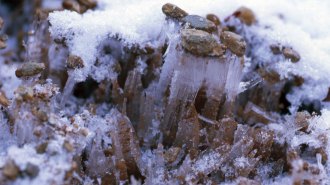 Earth
EarthHere’s how ice needles sculpt patterns into cold, rocky landscapes
Striking stone patterns decorate remote, frigid landscapes. The recipe for these naturally forming stripes and swirls: Freeze, thaw, repeat.
By Beth Geiger -
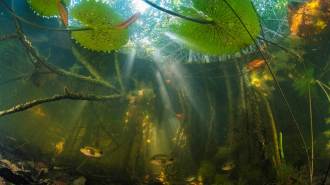 Life
LifeHow these sea-loving mangroves ended up far from the coast
On the Yucatán Peninsula, mangroves trapped nearly 200 kilometers from the ocean are part of a “relict ecosystem” that’s more than 100,000 years old.
-
 Earth
EarthEarth is reflecting less light. It’s not clear if that’s a trend
A decrease in Earth’s reflectance shows our planet is absorbing more solar radiation, but it’s not clear if the trend will last.
By Sid Perkins -
 Science & Society
Science & SocietyHow our SN 10 scientists have responded to tumultuous times
COVID-19, social justice movements and the realities of climate change have given our Scientists to Watch new perspective.
-
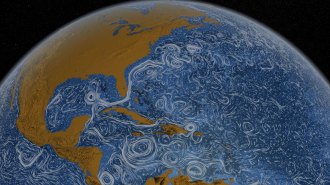 Physics
PhysicsWork on complex systems, including Earth’s climate, wins the physics Nobel Prize
Syukuro Manabe and Klaus Hasselmann pioneered work on computer simulations of Earth’s climate. Giorgio Parisi found hidden patterns in disordered complex materials.
-
 Climate
Climate2020 babies may suffer up to seven times as many extreme heat waves as 1960s kids
Children born in 2020 will bear a much heavier burden from climate change during their lifetimes than those born in 1960, a new analysis finds.
-
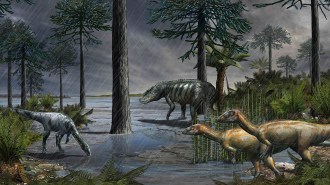 Earth
EarthA volcano-induced rainy period made Earth’s climate dinosaur-friendly
New physical evidence links eruptions 234 million to 232 million years ago to climate changes that let dinosaurs start their climb to dominance.
By Megan Sever -
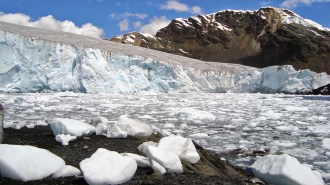 Climate
Climate‘Ice Rivers’ invites you to get to know our world’s melting glaciers
In her new book, Jemma Wadham brings readers along on her scientific expeditions to the world’s iciest places.
-
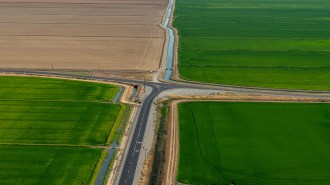 Climate
ClimateRice feeds half the world. Climate change’s droughts and floods put it at risk
Rice provides sustenance for billions who have no alternative, and climate change threatens to slash production. Growers will need to innovate to provide an important crop as climate whiplash brings drought and floods to fields worldwide.
By Nikk Ogasa -
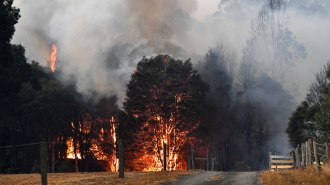 Climate
ClimateAustralian fires in 2019–2020 had even more global reach than previously thought
Recent devastating wildfires in Australia added vast amounts of carbon dioxide to the air and triggered blooms of marine algae in the Southern Ocean.